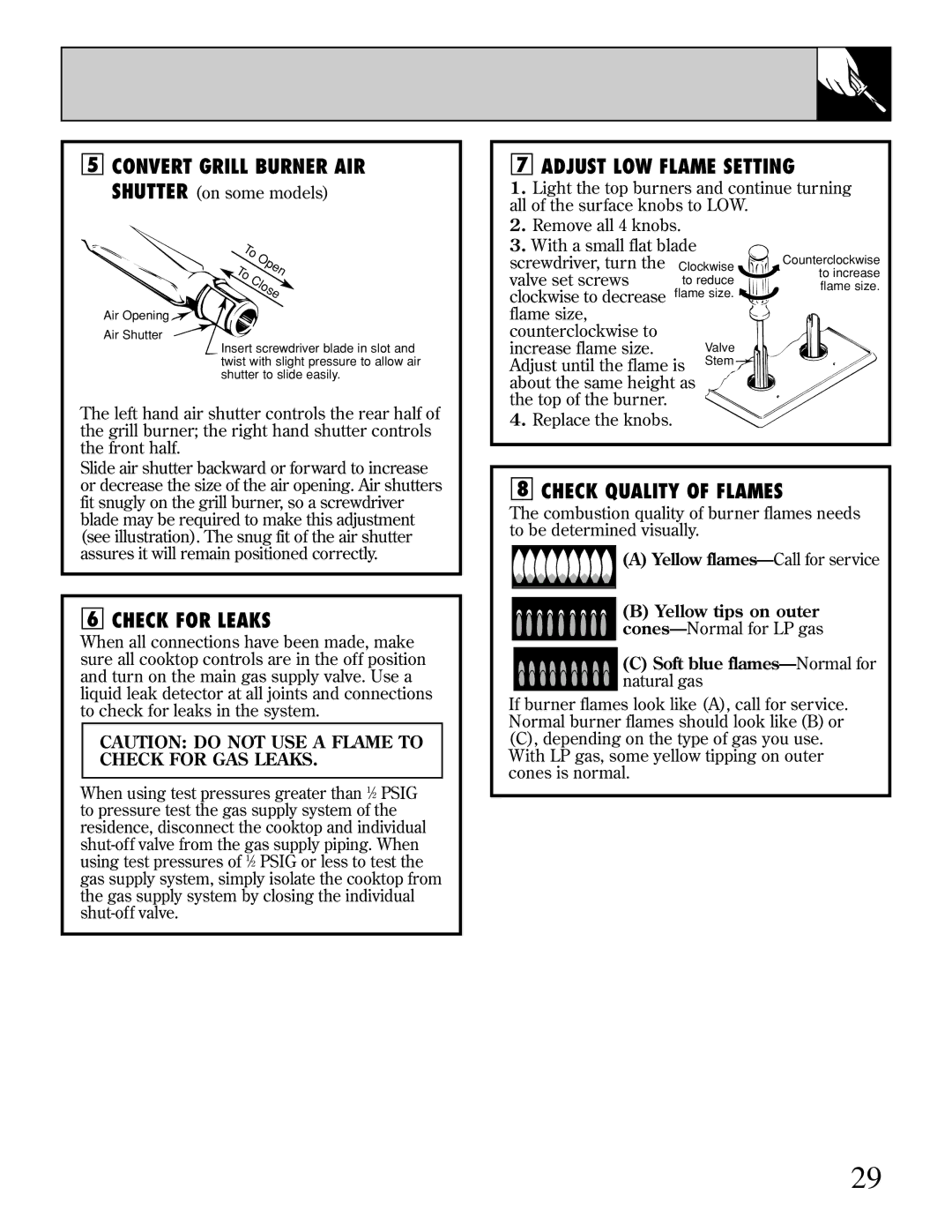JGP389 specifications
The GE JGP389 is a standout gas range that expertly combines functionality with style, making it a popular choice for modern kitchens. This appliance is notable for its dual-fuel capabilities, pairing a precise gas cooktop with the consistency of an electric oven. This synergy allows for both expert-level cooking and baking, appealing to home chefs and baking enthusiasts alike.One of the key features of the GE JGP389 is its 5-burner gas cooktop, which provides ample cooking space to accommodate various pots and pans simultaneously. Each burner is designed with different heat output, from a high-capacity burner that delivers intense heat for quick boiling to a low-simmer burner ideal for delicate dishes. The center burner is ideal for griddles, adding versatility for those who enjoy preparing breakfast or cooking larger meals.
The oven of the JGP389 uses advanced convection technology, which circulates heated air throughout the cooking cavity for even baking results. This feature is particularly useful for baking multiple trays of cookies or roasting vegetables, as it ensures consistent results without the need to rotate dishes. Furthermore, the oven boasts a self-cleaning option, making maintenance straightforward and reducing the effort required to keep the appliance in top condition.
In addition to its cooking prowess, the GE JGP389 is designed with user convenience in mind. The control knobs are positioned at the front, allowing for easy access and adjustments while cooking. The oven includes an integrated timer and temperature display, ensuring accurate cooking times and oven settings.
Safety is also a priority for this model; it is equipped with surface burners that ignite quickly and efficiently, and an oven that features an automatic shut-off option. These elements contribute to peace of mind while cooking, knowing that the appliance is both user-friendly and secure.
Overall, the GE JGP389 combines advanced technology, practical features, and a sleek design, making it a valuable addition to any kitchen. Whether preparing everyday meals or hosting special occasions, this gas range proves itself a reliable partner for culinary adventures. With its impressive versatility and modern conveniences, the GE JGP389 stands out in the realm of kitchen appliances.

